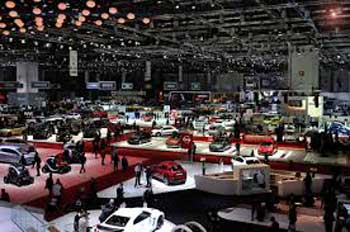An Exercise In Portal Management
 Although there is no guarantee that block exemption will be outlawed, manufacturers are concerned that any change in the legislation may cut off their all-important channel to the customers, which is primarily through the dealer network.
Although there is no guarantee that block exemption will be outlawed, manufacturers are concerned that any change in the legislation may cut off their all-important channel to the customers, which is primarily through the dealer network.
“The dealer network is the manufacturers’ interface with the customer. If the legislation changes, it could become extremely difficult for manufacturers to keep that tie with the customer,” Alfredo Filippone of the Association of European Automotive Manufacturers (ACEA) explained.
Stefano Chmielewski, vicepresident of sales and marketing at Renault VI, confirmed that the portal, which is designed to build a direct relationship with customers by allowing them to configure their vehicle online, was set up in direct response to the expected end to block exemptions.
Aimed at people in the transport industry, the site allows customers to access an online version of Renault’s entire product range of 350 models, and 13,000 different configuration options, from which. they can configure a truck to their exact specifications.
Once the configuration is completed, an e-mail is sent directly to the nearest Renault dealer, who will make contact with the customer within 24 hours. Although the final specification is sent directly to the dealer, the site allows Renault to capture user details, thereby establishing a direct link to the customer.
“We implemented this Web portal in a bid to take greater control over our customers. One of the biggest debates with the dealer network in this industry is: who owns the customer? With a modification in the distribution specification we need to be in more direct contact with our customers and this portal will enable us to do so,” said Chmielewski.
But despite the push to build a more direct relationship with the customer, the move was not a bid to replace the distribution network, rather it was an initiative to enable the dealer to make sales in less time, he added.
Lance Doughty, UK director of automotive at Cap Gemini Ernst & Young, confirmed that many vehicle manufacturers were taking pre-emptive steps to address the potential ramifications of a change in legislation. “Almost all manufacturers sell through a dealer network which means that today they don’t have a close relationship with their end-customer.
Companies want to start selling services as well as tin and they cannot do that today so they’re all trying to use the Web as a channel to get closer to their end-customer,” he said.
“Block exemption is the driver because it decreases the manufacturer’s control over the channel to market. The worst case scenario is that you take this legislation away and it becomes a free-for-all, and the manufacturer won’t have any control over its customer. It is perceived as a serious business risk so what Renault VI is doing is very sensible.”
Allen Pulham, director of UK dealer group the National Franchised Dealer Association, said manufacturer concerns centred around the ongoing debate about who owned the customer data. “Nobody knows who it belongs to: it is the last big question left. But at the end of the day, the dealer is always going to have the upper hand in terms of the customer database because he has built it,” he said.
According to Pulham a change in the law may mean the dealer could use that existing database to crosssell in a way he cannot today. “Manufacturers are covering their options in case their normal route to market is jeopardised by a change in legislation,” he said.
The RenaultVI.com portal is a Web-based extension of an application called Salesperformer Configurator, which was developed by US software provider Firepond, Used by sales staff in Renault dealerships since 1996, the older CD-Rom system forms the basis of the new Web application.
Development of the online system, which cost about [epsilon]lm ([pounds]600,000), was done in conjunction with Firepond. Work started at the end of September last year, and the site went live at the beginning of April. The system runs on Sun Solaris servers and an Oracle database, and product data on the trucks is housed on a Microsoft data import system.
Although the database holding product and technical information is connected to back office systems, there is no interface with the ordertaking or production side of the operation. There is also no direct link to the dealer, but plans are afoot to allow dealers to order online.
“That’s the next step. We want to start with the customer, then move on to the dealer – who will eventually be able to order online – but we need money first. Then we will work on an interface that will link dealers or large customers directly to the production site as it’s obviously a key element if you’re going to remain competitive,” said Chmielewski.
The internal benefits of using the site are likely to be significant, although achieving cost reductions will take some time. “Through using this system we can reduce inventory levels, response times and the people involved in the process, which will reduce costs. But its going to take Qne to two years,” said Chmielewski. Cost reductions will also be achieved by eliminating errors.
Klaus Besier, chairman and chief executive of Firepond, said the use of systems to reduce the order cycle time would be of key importance, particularly in the discrete manufacturing sector.
“The aim is to rationalise their order cycle time by pushing their vehicle configuration process on to the Web. All discrete manufacturers will end up with a system like this to reduce cycle time,” he said.
Your Words + MIne